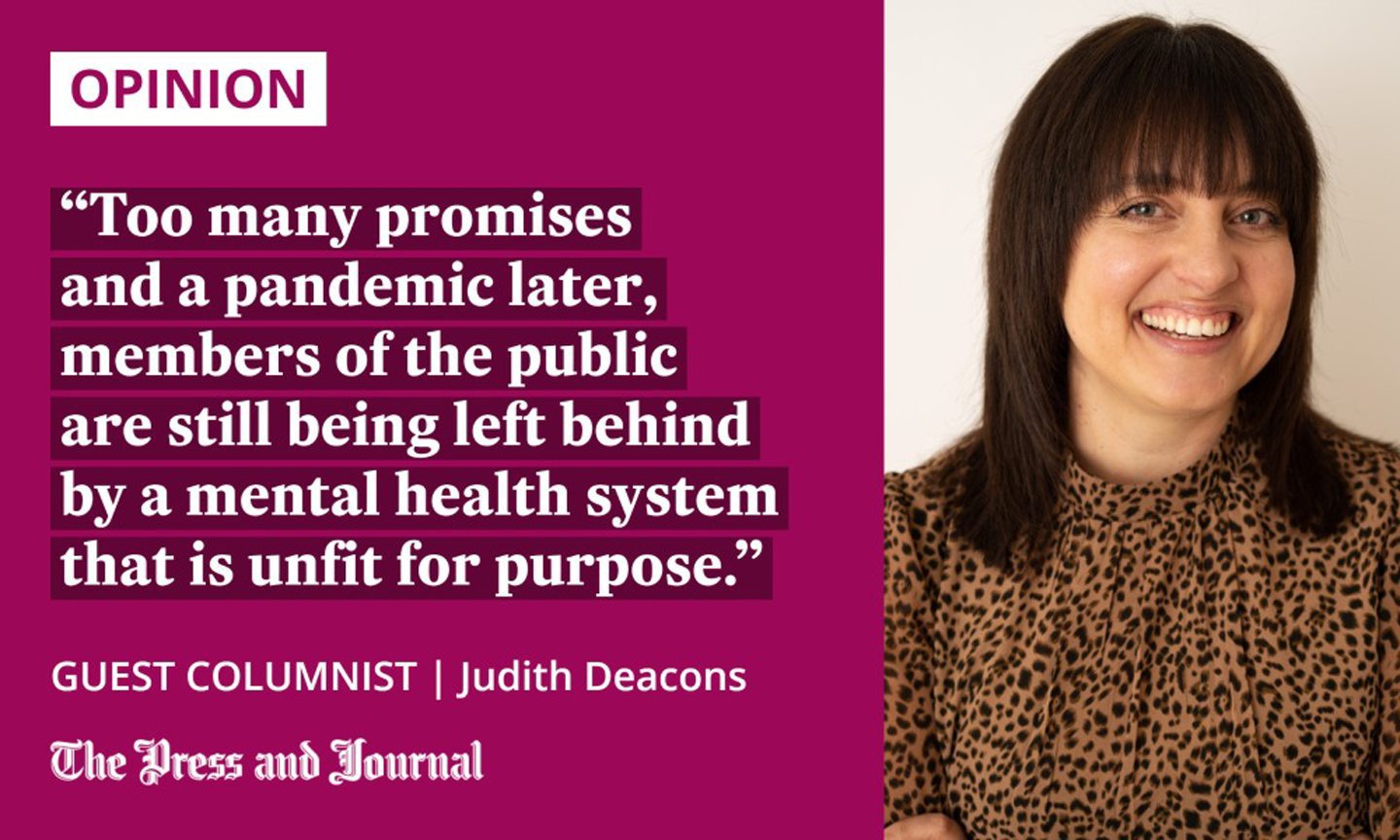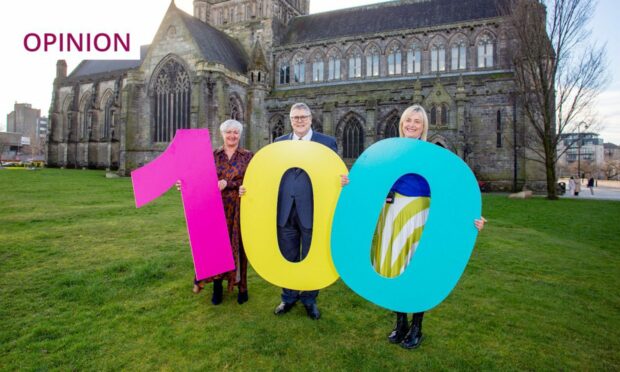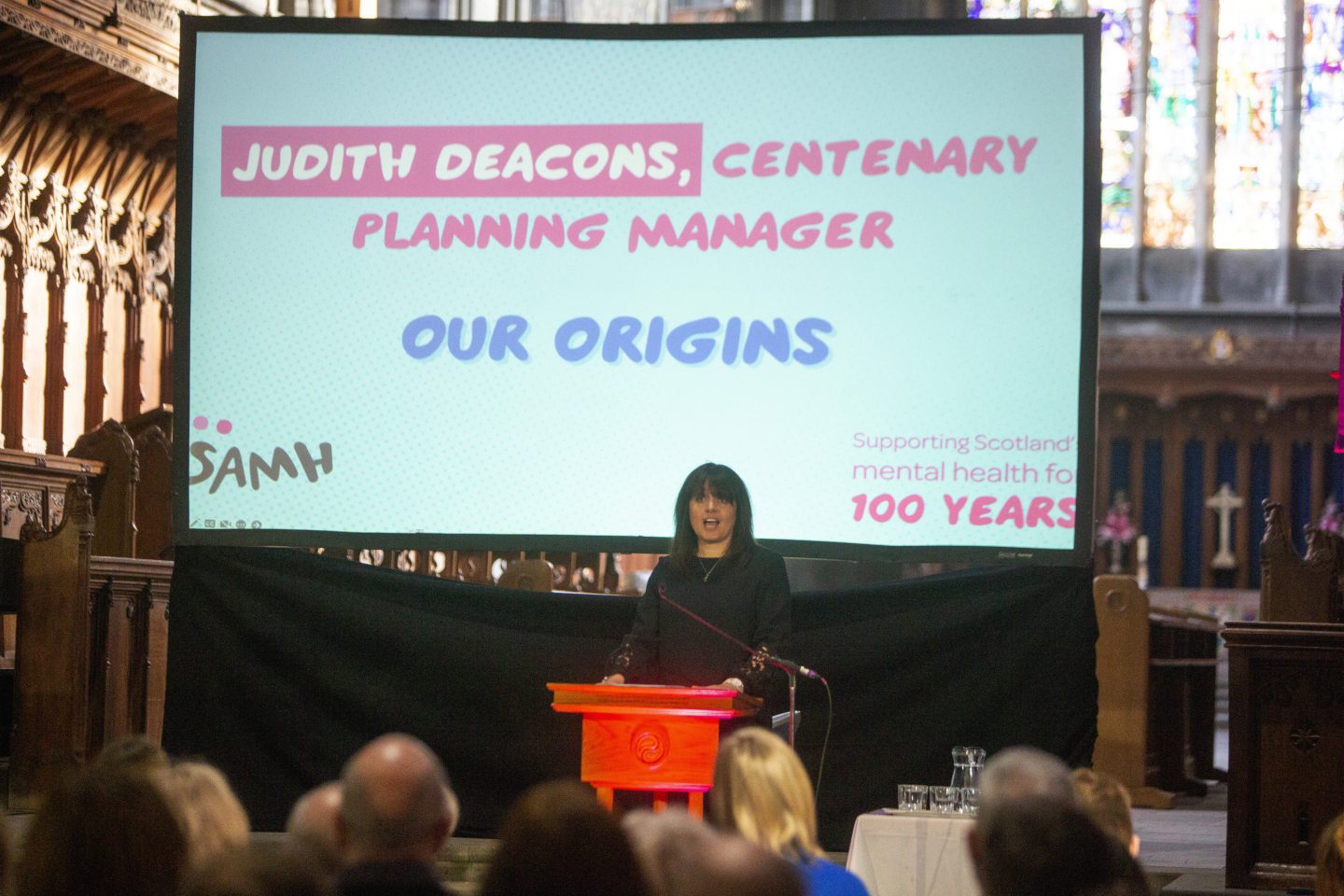This year, the Scottish Association for Mental Health (SAMH) turns 100.
Older than the NHS, we trace our roots back to the early 1900s: a time when people with mental illness were routinely shut away in workhouses or prisons, and the topic of mental health was considered firmly taboo.
Working in a society where women often had no voice, our founder Dr Kate Fraser dared to imagine an alternative approach to caring for mental health, and devoted her life to pioneering change.
Dr Fraser was the first female deputy commissioner on the General Board of Control for Scotland (where she later became commissioner), and it was thanks to her influence that the rights of people with mental ill-health were enshrined in the Disabled Persons Employment Act 1958. Her tireless commitment was recognised when she was awarded a CBE, aged 68, for her contribution to mental welfare.

In honour of Dr Fraser, who hailed from Paisley, we marked the start of our centenary activities by hosting 100 colleagues and supporters at the historic Paisley Abbey earlier this month.
We are using this milestone to bring people together across Scotland, in communities, workplaces and places of education. This includes inviting you to support SAMH by offering free spaces on this year’s Kiltwalk, taking place in Aberdeen on June 4, so we can walk together for the benefit of Scotland’s mental health.
Our mental health system is still unfit for purpose
Most importantly, we are using our 100th year as a catalyst to drive forward our ongoing commitment to providing mental health support where and when people need it. Last year, SAMH supported almost 25,000 individuals with their mental health and wellbeing, but we know we are a long way from achieving a mentally healthy society.
Too many promises and a pandemic later, members of the public are still being left behind by a mental health system that is unfit for purpose. Rejected referrals, indeterminate waiting times and inadequate support are still all too commonplace.
I feel proud to be in a position to help play a part in leading our centenary year. Now, more than ever, people need our help.
My passion to be part of positive change is not unique at SAMH. I am surrounded by 550 colleagues who are equally committed, operating more than 70 services in communities across Scotland, spanning employment, horticulture, supported accommodation, peer support, suicide prevention and more.
A century on, SAMH keeps Dr Fraser’s vision alive across Scotland’s communities every single day, but there is still so much left to do. We’ll be here for as long as we’re needed, standing up for Scotland’s mental health. Will you join us?
- Find out how you can get involved online at samh.org.uk/centenary
Judith Deacons is centenary programme manager at SAMH


Conversation